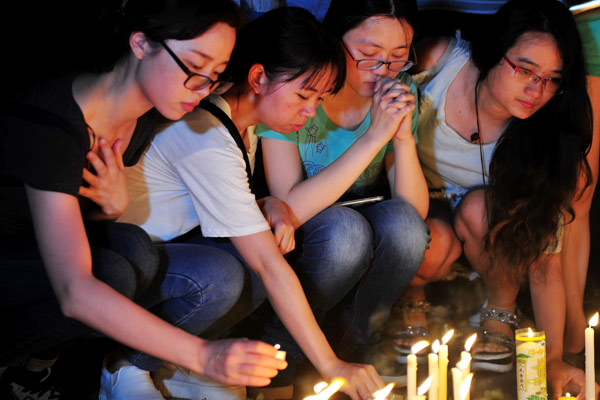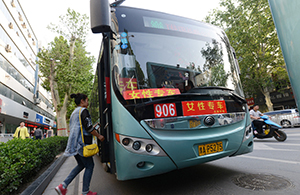Media must play its part in restoring trust between doctors and patients
(China Daily) Updated: 2016-05-10 07:59
 |
|
Guangzhou citizens take part in a candlelight vigil on Saturday for Chen Zhongwei, a doctor who died on Saturday of a multiple stabbing by one of his former patients.[Photo by Chen Jimin/China Daily] |
CHEN ZHONGWEI, a dentist in Guangzhou, South China's Guangdong province, died on Saturday after being stabbed 38 times by a former patient. The case aroused nationwide attention and put violent conflicts between doctors and patients in the spotlight. Trust between the two has already been ruined and it will take a long process to rebuild it, said Beijing Youth Daily on Monday:
There have been too many similar cases in which patients attack, even kill, medical staff because they believe they have not received the proper treatment. The number of these cases is so many that we cannot say they are individual cases and they happen because there is widespread mistrust in the society.
Some media outlets repeatedly report on the conflicts between medical staff and patients by automatically pinning the blame on medical staff even though these media outlets lack even the most basic knowledge of medicine.
Worse, in order to gain popularity, some speculate about medical issues. A recent example was a case in Xuzhou, East China's Jiangsu province, which wrongly implied that a doctor might have removed a patient's kidney and sold it.
This implication is absurd. Everyone with even the most basic medical knowledge knows it is impossible to transplant a kidney without ample preparations such as type matching and rejection testing. But the hospital faced a major crisis as headlines appeared implying it "stole a kidney from a patient".
Such reports will further damage the already ruined relationship between doctors and patients. Media outlets have the right to dig for facts, but they need to remain bipartisan and professional.
Both the medical staff and the patients are victims of the worsening relationship between them. It is time for society to rebuild trust. That will be a long process, but we have no other choice than to start the job right now.

I’ve lived in China for quite a considerable time including my graduate school years, travelled and worked in a few cities and still choose my destination taking into consideration the density of smog or PM2.5 particulate matter in the region.











